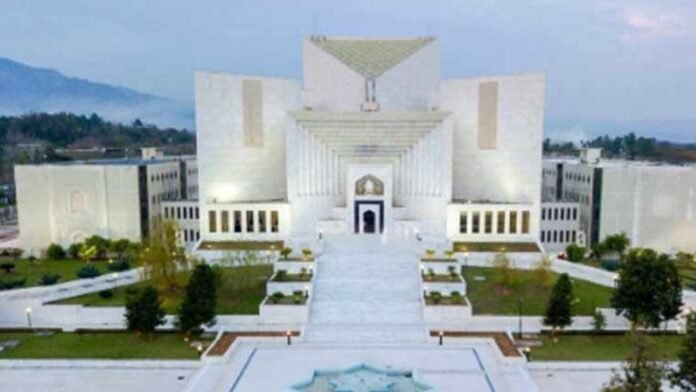Today, the Supreme Court of Pakistan will continue hearing the review appeals that seek an interpretation of Article 63-A. An active five-member bench headed by Chief Justice Qazi Faez Isa is hearing and deciding this issue. This case has attracted great attention since it deals with key issues of political stability and legal certainty in the country.
The team comprises Justice Qazi Faez Isa, Chief of the Supreme Court of Pakistan, Mr. Justice Aminuddin Khan, Mr. Justice Jamal Mandokhail, Mr. Justice Naeem Akhtar Afghan & Mr. Justice Mazhar Alam Miankhel. How Article 63-A is interpreted regards the political defection and the political practices and behaviors under the constitution of Pakistan. Responses to these appeals shall either reinforce or diminish that legal practice in the short and long term.
Complete Analysis of Article 63-A and Why It Matters
Article 63-A of the Constitution Order deals with disqualification from the legislature based on defection. This provision originally aimed to protect against political betrayal, primarily known as “floor crossing,” where members of parliament or provincial assemblies switch parties during votes on specific issues. People have long viewed cross-voting as a threat to Pakistani politics, discouraging public engagement in the political process.
The review appeals seek to overturn the previous judicial application of this article, which upheld the enforcement of strict denunciation of political defection. Presently, the turbulent political environment, coupled with arguments from several actors, has made the case that the Review targets politicians and legal professionals.
Overview of Relay of Arguments in Court Article 63-A
On the first day of the Islamabad High Court Bar Association hearing vs. The Federation of Pakistan, Shehzad Shaukat, the Supreme Court Bar President, exhausted all his arguments. He also favored reviewing the past decision and so dismantled the court on Article 63-A as the interpretation.
The Position of PTI on the Revision Petitions Article 63-A
Conversely, PTI lawyer Barrister Ali Zafar argued against the review petitions. He opposed reviewing the past pronouncement, claiming that the law properly supported it. He stated that the earlier ruling promoted the political process rather than the politics of defection by upholding the stigma of political turncoats.
Even Ali Zafar interposed on the Constitution bench of the Supreme Court regarding the bench composition.
Request by Imran Khan for Suggestion of Sorts Article 63-A
During the session, the courtCourtwed Ali Zafar to have one of the co-founders of Pakistan’s Pakistan Tehreek-e-Insaf party, Imran Khan, in Adiyala Jail. This meeting would enable Ali Zafar to seek Imran Khan’s advice about filing legal review petitions.
Federal Government and PPP’s Support for Review Petitions Experienced Politicians and Political Parties
The federal government and the Pakistan People’s Party (PPP) have opposed the review petitions. They have stated that the last analysis of Article 63- A ought to be re-examined to fit the democratic norm and that of the elected representatives. Their endorsement complicates the situation as it shows the tension between political parties over defection and the broader problem of allegiance to the parliament.
What to Watch Out For In The Hearing Scheduled shortly Article
As the hearing proceedings progress, Ali Zafar will present further reasons on behalf of PTI. His arguments will most likely strengthen the party’s stance against the review, citing possible political problems in case a reversal is reached. On the other hand, the federal government and PPP will still seek a revision but for a more comprehensive article of 63A.
On the other hand, many will clearly understand the Constitution’s significant impact on the trajectory of this matter, and the Supreme Court’s anticipated ruling in this case will carry great importance. This ruling may change how political parties handle defections in the future and even reshape how power operates within the country’s political landscape.
Conclusion
The present report assesses the ongoing appeals hearing challenging specific applications seeking judicial review regarding Article 63 A of the Constitution in the Pakistan Supreme Court. While the adjudicatory process continues in the courtCourt society holds its breath to hear a judgment that effectively permits the rewriting of political allegiance through the Constitution.


